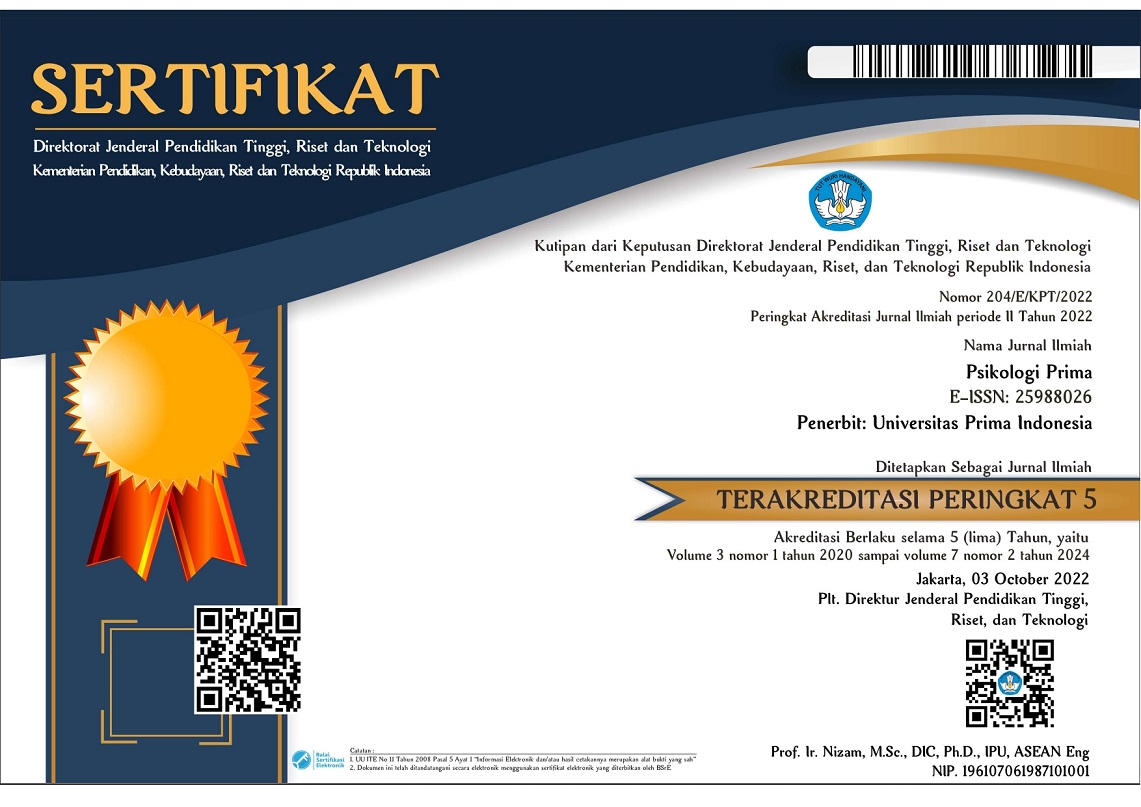MARRIED SATISFACTION IS REVIEWED FROM RELIGIUSITY TO INFERTILED COUPLES IN SEI SIKAMBING D VILLAGE
DOI:
https://doi.org/10.34012/psychoprima.v3i1.1323Keywords:
marital satisfaction, religiosityAbstract
This study aims to find out the relationship between marital satisfaction and religiosity. The hypothesis drawn in this study is that there is a positive relationship between religiosity and marital satisfaction, assuming the higher the religiosity, the higher the marital satisfaction and conversely, the lower religiosity, the lower the marital satisfaction. The subjects of this study are the infertile couples that have been married for 2 years, in Kelurahan Sei Sikambing D, as many as 40 couples. Data obtained from the scale to measure religiosity and marital satisfaction. The calculation is performed through the prerequisite test analysis (assumption test) which consists of normality test of distribution and linearity test of relationship. Analysis of the data used is Pearson correlation through SPSS 17 for Windows. The results show the correlation coefficient of 0.610 with p of 0.000 (p < 0.05). It indicates that there is a positive relationship between religiosity and marital satisfaction Religiosity is one of the factors that affected prosocial behavior with the contribution (R2) of 37.2%, and the remaining of 66.8% is affected by other factors not examined in this study. From these results, it can be concluded that the hypothesis of there is a positive relationship between religiosity and marital satisfaction is acceptable.













